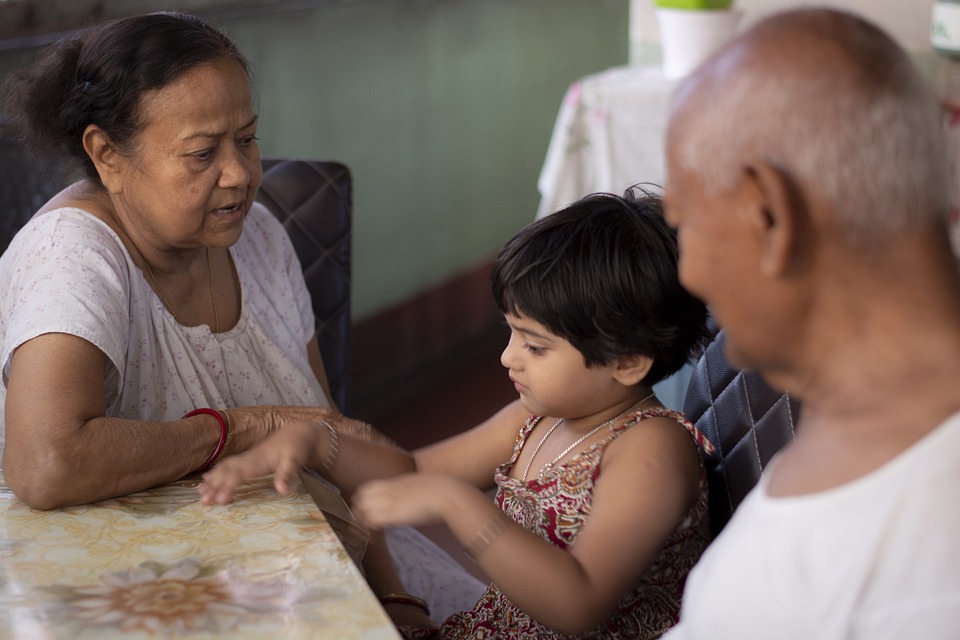Compassionate Caregivers: A Nurturing Environment

In today’s fast-paced world, the role of a caregiver often goes unnoticed. Yet, caregivers are the unsung heroes who dedicate their lives to improving the well-being of others. Compassionate caregiving is more than just attending to the physical needs of individuals; it’s about understanding, empathy, and providing emotional support.
Understanding Compassionate Caregiving
Compassionate caregiving is a holistic approach that goes beyond addressing physical ailments. It’s about creating a supportive environment where individuals feel valued and understood.
At the heart of compassionate caregiving is the ability to empathize with the person being cared for, recognizing their emotional and psychological needs.
The Importance of Empathy
Empathy is a cornerstone of compassionate caregiving. It involves putting oneself in another’s shoes, understanding their feelings, and responding in a supportive manner.
This emotional connection can significantly enhance the caregiver-patient relationship, leading to better outcomes and a higher quality of life for those receiving care.
Building Trust and Rapport
Trust is fundamental in any caregiving relationship. Establishing trust requires consistency, reliability, and open communication. Caregivers who take the time to listen and respond to the concerns of those they care for can build a strong rapport, fostering a sense of safety and security.
The Role of a Compassionate Caregiver
Caregivers wear many hats and their responsibilities can vary greatly depending on the needs of the individual. However, compassionate caregivers share common traits and practices that define their approach to care.
Active Listening
Active listening involves fully focusing on the person speaking, understanding their message, and responding thoughtfully. This practice helps caregivers to better understand the needs and concerns of those they care for, allowing for more personalized and effective care.
Emotional Support
Providing emotional support is a critical aspect of compassionate caregiving. Caregivers often deal with individuals who face significant challenges, whether due to illness, disability, or aging. Offering a listening ear, encouragement, and reassurance can make a significant difference in the lives of those they support.
Advocacy
Compassionate caregivers often find themselves advocating for the needs and rights of the individuals they care for. Whether it’s communicating with medical professionals, coordinating services, or ensuring that the individual’s preferences are respected, advocacy is a vital component of caregiving.
The Impact of Compassionate Caregiving
The impact of compassionate caregiving extends beyond the individuals directly receiving care. It influences families, communities, and even healthcare systems.
Enhancing Quality of Life
Compassionate caregiving contributes to a higher quality of life for those receiving care. By addressing not only physical needs but also emotional and psychological well-being, caregivers can help individuals lead fuller, more satisfying lives.
Reducing Stress and Anxiety
For both caregivers and those they care for, a compassionate approach can reduce stress and anxiety. Knowing that there is someone who genuinely cares and understands can alleviate the fear and uncertainty that often accompany illness or aging.
Strengthening Families and Communities
Families and communities thrive when compassionate caregiving is the norm. Caregivers often become integral parts of the family unit, providing support and stability that benefits everyone involved. Communities that support caregivers and recognize their contributions are healthier and more resilient.
Challenges Faced by Compassionate Caregivers
Despite the rewards, caregiving comes with its own set of challenges. Understanding these challenges is crucial for supporting caregivers in their role.
Emotional and Physical Exhaustion
Caregiving can be both emotionally and physically demanding. The constant need to be attentive and responsive can lead to burnout if not managed properly. It’s essential for caregivers to practice self-care and seek support when needed.
Balancing Personal and Professional Life
Many caregivers juggle their caregiving duties with other personal and professional responsibilities. This balancing act can be challenging and requires effective time management and prioritization.
Access to Resources and Support
Caregivers often face the challenge of accessing adequate resources and support. Whether it’s finding respite care, financial assistance, or educational resources, having access to the right support is crucial for sustainable caregiving.
Supporting Compassionate Caregivers
Providing support for caregivers is essential to ensure they can continue their vital work effectively. Here are some ways to support caregivers:
Offering Respite Care
Respite care provides temporary relief for caregivers, allowing them to recharge and attend to their own needs. This support is crucial in preventing burnout and ensuring the caregiver can continue providing quality care.
Creating Support Networks
Caregivers benefit greatly from having a network of peers who understand their challenges. Support groups, whether in-person or online, can offer a space for caregivers to share experiences and advice.
Providing Educational Resources
Access to educational resources can empower caregivers with the knowledge and skills needed to provide the best care possible. Workshops, online courses, and informational materials can enhance a caregiver’s ability to navigate complex care situations.
Conclusion: The Power of Compassionate Caregiving
Compassionate caregiving is a powerful force that transforms lives. Through empathy, understanding, and unwavering support, caregivers make a profound impact on those they care for.
As a society, it’s essential to recognize and support the invaluable contributions of caregivers, ensuring they have the resources and support needed to continue their vital work. By doing so, we not only enhance the lives of those receiving care but also build stronger, more compassionate communities for all.






